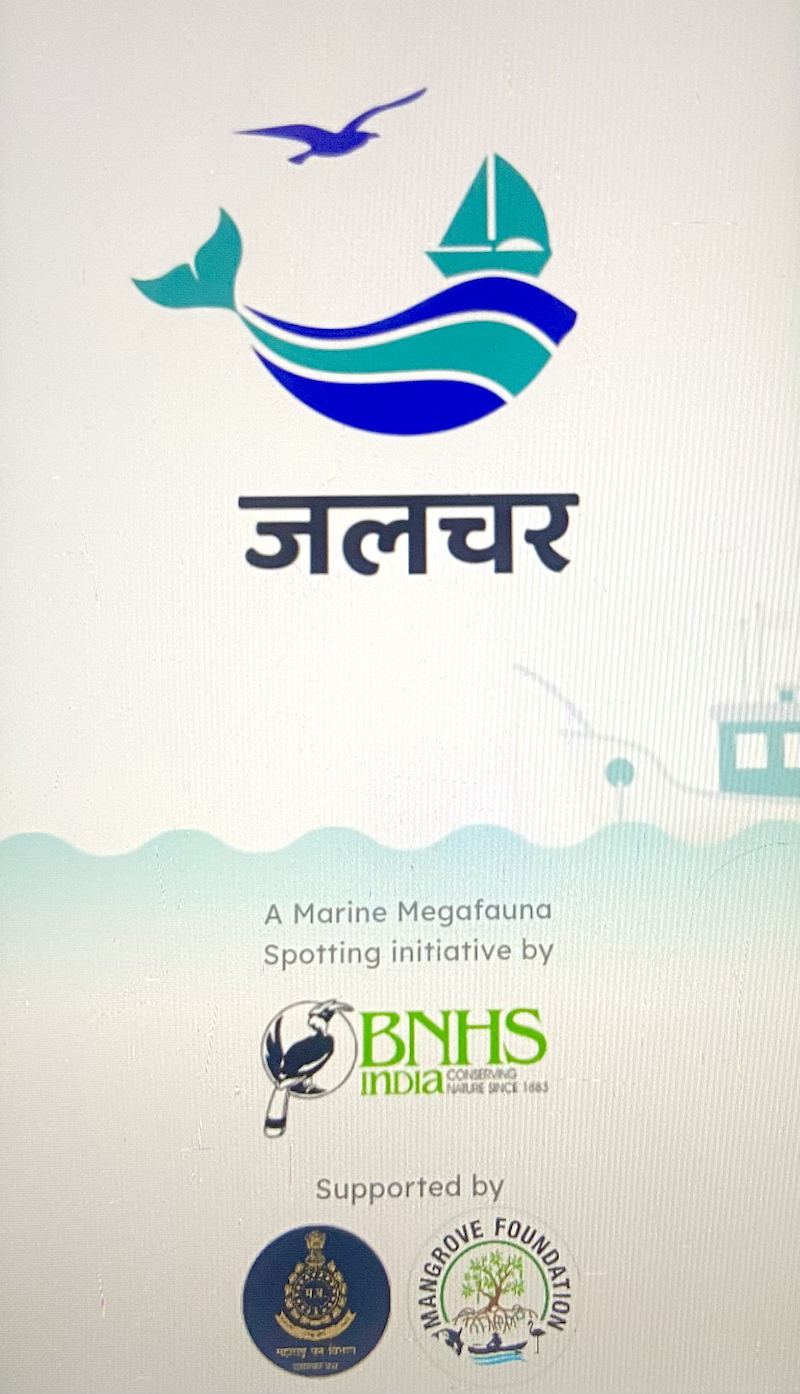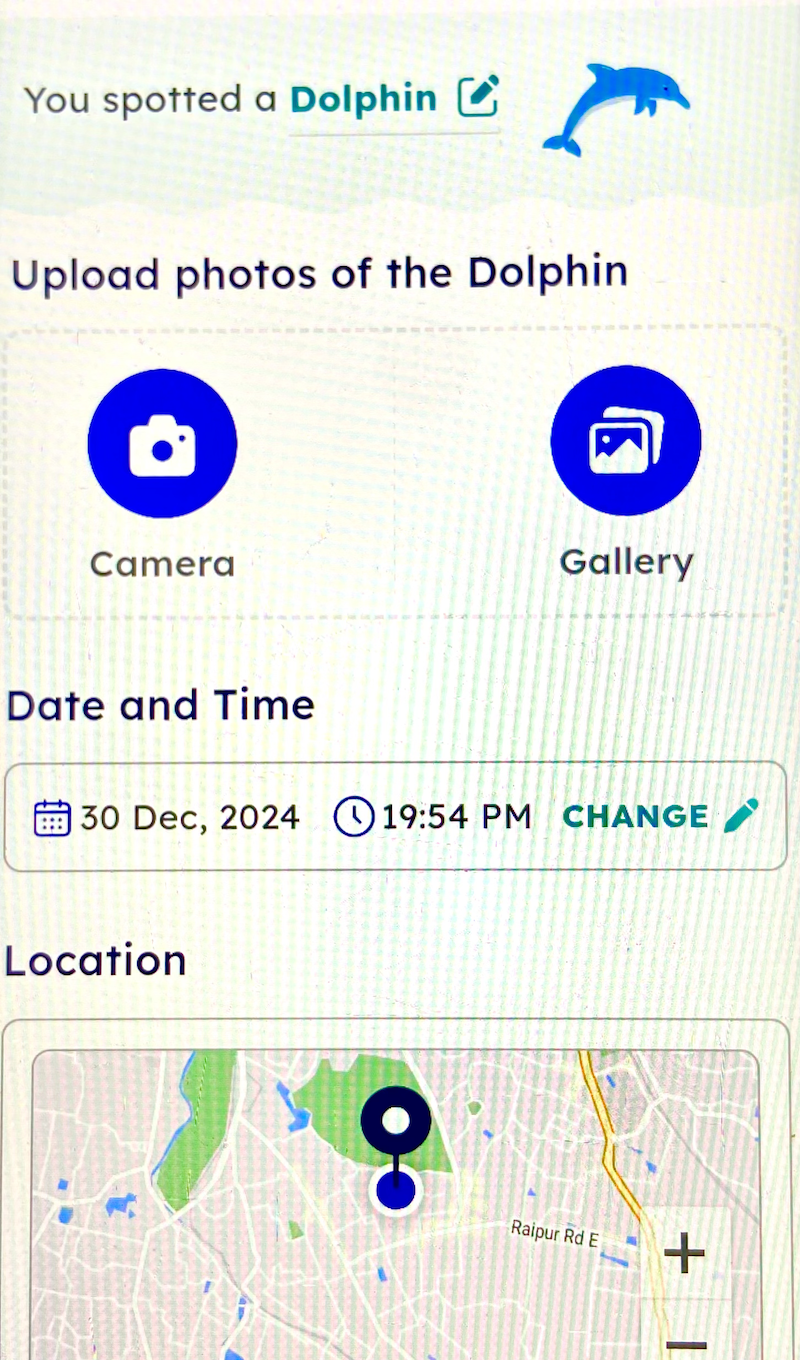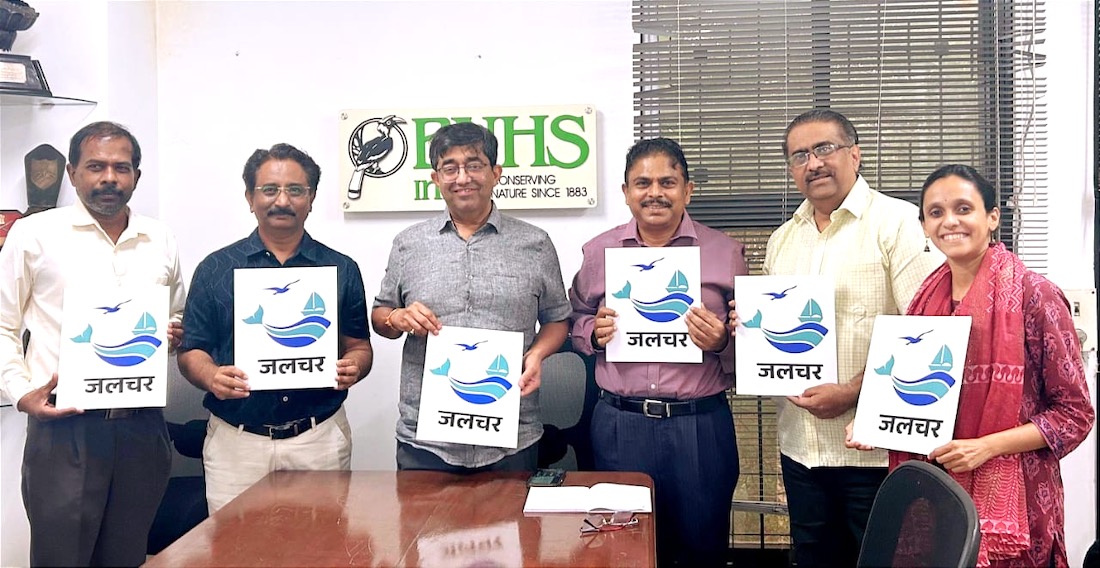In 2023, a blue whale calf weighing around 5 tons was discovered stranded on a beach near Ganpatipule in Ratnagiri. However, despite great attempts made to rescue it and send it back into deep waters, the calf could not survive. According to experts, the blue whale calf had remained out of water for too long (around 35 hours) to survive. Under such conditions, whales suffer from dehydration, heat, and internal organ damage. The sad loss of the blue whale calf served as a stark reminder of the importance of time in marine life rescue missions. Tragic incidents like these inspired the design of a mobile application that would save valuable time during such marine life strandings and help protect marine fauna.
Thus, the Jalchar App, a marine megafauna spotting initiative, was born. The project was spearheaded by BNHS with support from the Mangrove Foundation and the Maharashtra Forest Department. The app was designed by Harrier Information Systems Pvt. Ltd.. It was launched on October 15, 2024, at the Hornbill House, BNHS, Mumbai.

What Is The Jalchar App?
Jalchar, meaning “water-dwelling or aquatic,” is an aptly named mobile application designed to facilitate marine research, rescue, and conservation. The application is available in multiple languages and can be used by marine researchers, local fishermen, and citizen scientists to contribute real-time data on the observation of marine species.
The Jalchar application allows users to record data in the form of photographs and geolocation in real-time, even when the user is offline, like in the case of remote coastal locations. The data can be securely entered offline by the user, and once the device connects to the internet, the data is automatically synced to the BNHS portal. If there is any stranding of a marine animal or any case where immediate rescue is needed, BNHS can immediately alert the local rescue team to save valuable time. Not only that, the application will also be used by marine biologists and conservationists to gather valuable data related to species distribution and related conditions that will allow the implementation of successful conservation strategies to save marine life.
“By allowing users to report marine mammal sightings, strandings, and seabird encounters in real-time, the Jalchar app facilitates the creation of a robust database. This data enables researchers to identify hotspots and assess species distribution more effectively than ever before. With the help of real-time updates on strandings, the app also expedites rescue and rehabilitation efforts,” mentioned Dr. Reshma Pitale, Marine Biologist at the Bombay Natural History Society.
Using The Jalchar App

Users can easily download the Jalchar application on an Android mobile device. Once downloaded, users must register with a mobile number and enter their name and location. The app is currently available in four languages: English, Hindi, Marathi, and Gujarati. Users can choose any language according to their preferences.
Once registered, the application is ready to use. In the profile section is the “Animal Rescue” tab, which provides the contact number for calling the authorities in case any marine mammal is found to be in danger. There is also a “Contact Support” section to call if the user faces any issues while using the application.
The Home page opens with the question, “What did you spot?” and features a series of images with the names of marine fauna—dolphin, turtle, porpoise, shark, whale, bird, and others.
The user can select an option according to the sighting, which opens to a page where the user can enter images of the animal, date and time, location (also automatically updated), and any other description. The information gets relayed to the BNHS for further action.
The Jalchar app also has a “Learn” section, where users can learn about the conservation and research work done by BNHS.

